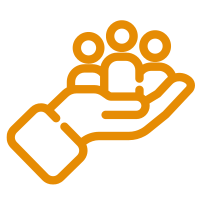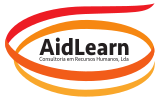Diversity Management

Diversity Management training course aims to improve the pedagogical competences related with the diversity management of adult educators, contributing to the standardization and quality of vocational training to adult educators. Also an objective is to promote a better understanding of diversity, and making use of it to obtain better results to everybody.
Diversity management is an important issue and every time more relevant because the diversity of people is increasing everywhere. Diversity could be in gender, age, social class, culture, religion, race, background, interests, origin country, etc. This diversity could lead to different behaviours and reactions to same events, different ways to work, different ways to learn, and if we are able to manage the diversity we can enhance the potential of each individual and obtain results with more quality.
The course includes 4 modules (6h face to face and 4h self-learning) and a final project on diversity management.
Target Audience
The course is designed to adult trainers and teachers, who are considered agents of policy and change since they can reach and work with many people and through that are able to transmit, in an effective way, the new skills to a large group of people, although other interested parties can participate as well.
Objectives
The development of technical and teaching skills of trainers in order to increase capacity to implement, in their professional practice, ways and tools for adaptive education, managing and harnessing the potential of learning to manage diversity in terms of age, gender, culture, ethnicity, opportunities, race, social, economic etc., variables which are present in all training groups and / or education, and many learning professionals have not developed the ability to manage and don’t have varied teaching skills appropriate to the pedagogical and equitable management of diversity present in the training groups.
More specifically, the aims are:
- How to know their learners and choose the adequate pedagogic methods and resources
- How to lead a diverse group and the communication process
- How to ensure the individual progress of their learners
- How to manage oneself – self-reflection.
Trainer/s
Preparation
AidLearn will send to each participant, as soon as he/she is formally registered to the training course, the manuals of the course. This is the self-learning part of the 4 modules, and the participant is advised to engage in it before coming to the training course. AidLearn will also send information regarding the site of the training course: how to get there, interesting touristic places to visit, lodging and food, and some Portuguese culture and language tips.
Each participant will prepare a slideshow presentation (PowerPoint or other) to introduce his/her organisation to others and what are the expectative to the training course. This presentation should be sent to AidLearn one week before the training starts.
Methodology
The methodology established is based on the specificities of the participants, based on technical and scientific principles of training. For this purpose, the methodology to be applied will appeal to a constructivist pedagogy focused on forming, using active techniques that allow each participant to experience situations similar to real scenarios of professional experienced in everyday life and business, and reflect on them. The methodological device to be taken in developing training mobilize the use of strategies that promote the questioning of the topics discussed and the active integration of knowledge in professional practices, and will be used as pedagogical techniques: training exercises and self-diagnosis; debates of ideas and clarification issues; group work; simulations; directed discussions; case analysis; practice.
Follow - Up
The training course finishes with an evaluation questionnaire regarding the training course and organization. It is created a mailing list with all the participants: learners, trainers and coordinator, and they are encouraged to communicate with each other regarding the professional practice of what they learnt.
The participants are invited to join the AidLearn Facebook page dedicated to the training, so it is possible to everybody maintain contact with the group and with other participants in AidLearn training courses.
Course Program
- Day 1
-
- Welcome, ice breaking, outline of the course
- Day 2
-
- How to know your learners
- Chose the adequate methods and pedagogic resources
- Day 3
-
- Leading a diverse participants group
- Comunication process
- Day 4
-
- To manage to individual progress of leaners
- Social visit
- Social Dinner
- Day 5
-
- Instruments and technics to evaluate
- How to mange myself
- Day 6
-
- Self-refletction technics
- Create a individual/group project
- Day 7
-
- Presentation of projects by participants
- Free Time
- Fareweel dinner
Course Fees
- Course fee (7 days): 490€
- Amount which includes preparation for the course, tuition, training materials, administration costs, AidLearn organizational costs.
- Course Package (8 nights – single room): 1.205€
- Course Package, which includes course fees (as above), lodging in single room for 8 nights with breakfast, lunches, visit, social dinner and farewell dinner, per person.
- Course Package (8 nights – double room): 1.125€
- Course Package which includes course fees (as above), lodging in a shared double room for 8 nights with breakfast, lunches, visit, social dinner and farewell dinner, per person.




